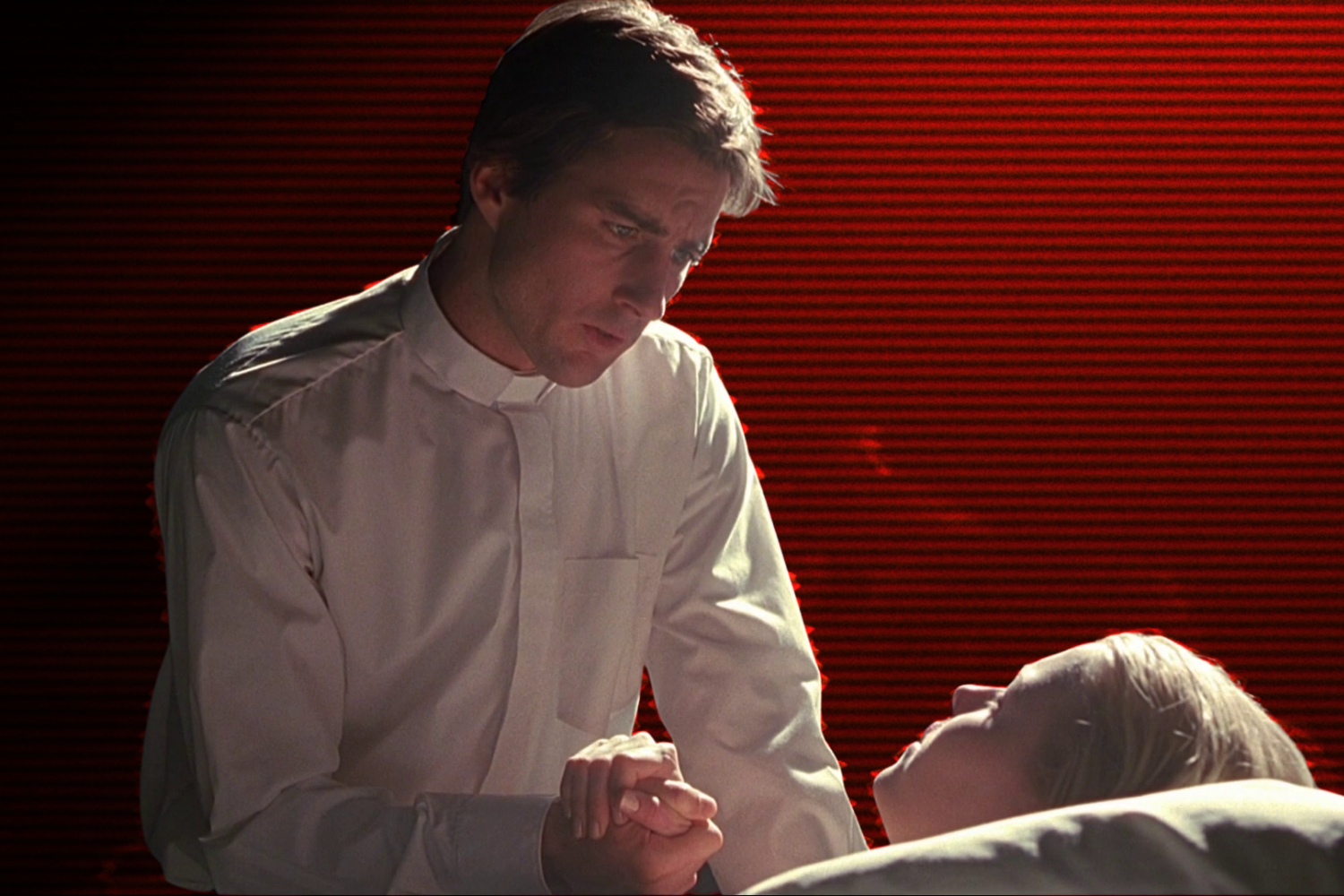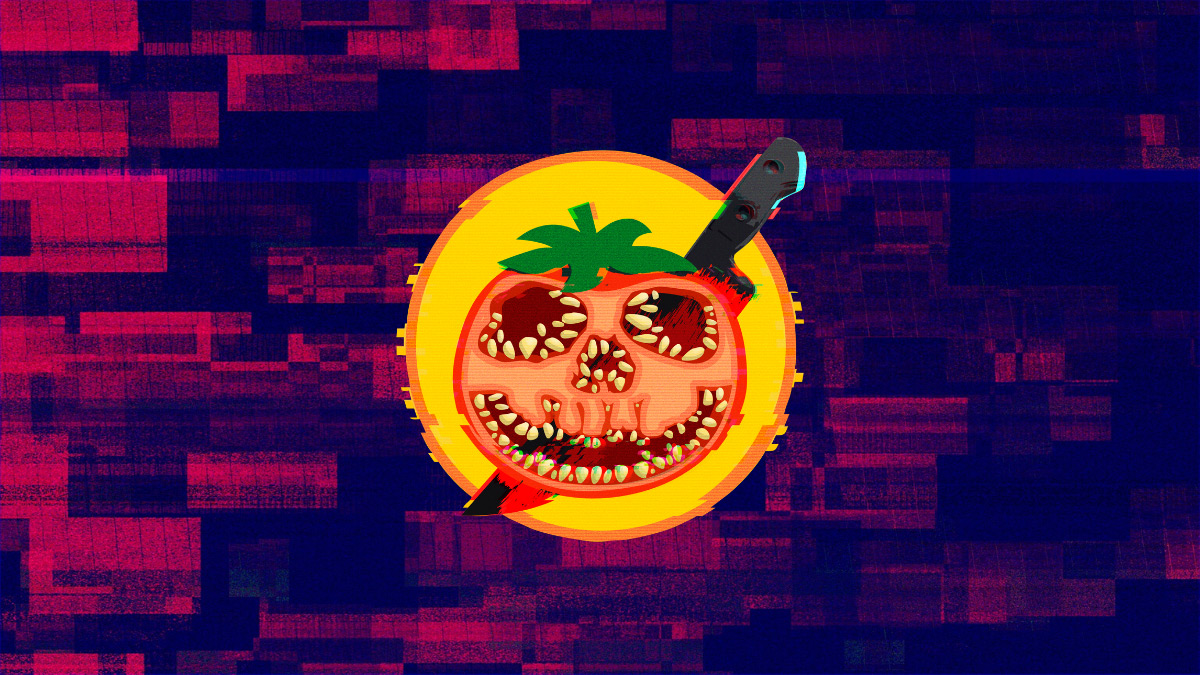Editorials
Meditations on Guilt in ‘Soul Survivors’
April 9th, 2021 | By Maggie Stankiewicz

What’s the worst thing you’ve ever done? Stephen Carpenter‘s 2001 critical reject Soul Survivors is a thesis on this very question and the matrix of emotions that stem from the answer. Following the success of teen-horror darlings I Know What You Did Last Summer and Urban Legend, the film featured other rising stars of the early aughts, but with a grungier, moodier tone than its predecessors. Rather than blithely contemplating the concepts of culpability, mortality, and death, Soul Survivors takes a turn towards self-flagellation, guilt, and the ruthless consequences of our actions.
Cassie (Melissa Sagemiller), Sean (Casey Affleck), Matt (Wes Bentley), and Annabel (Eliza Dushku) are prototypical American teenagers on the precipice of adulthood. In that equidistant time between high school and college, the group decides to attend a party in an old church. The location further situates the gang in the realm of the intermediate—where they exist neither here nor there. Scribbled on the exterior of the church are warnings of what’s to come. “Abandon all hope ye who enter here,” greets Cassie in sanguineous spray paint. Later, on the dancefloor, masked men attempt to grab Cassie before she makes her way to safety outside beside Sean.
They talk, unaware that Matt is listening to them exchange proclamations of love. When Sean returns to the club atmosphere, Matt captures Cassie’s attention and confesses his love for her. Cassie agrees to give Matt a final goodbye kiss, once again finding herself caught in the middle (between Sean and Matt). This suspension of finality continues when Sean witnesses the kiss, and the group decides to relocate. Cassie is at the wheel, driving erratically with panic and alcohol in her blood. Too distracted and under the influence, she crashes the car. We see Cassie being rushed through the hospital, with Matt and Annabel unharmed. Sean was confirmed dead on the scene.
This is where Soul Survivors transcends its conventional horror set-up. There are still men in masks and fountains of blood, but Cassie is more haunted by her guilt. Remorse becomes the agent by which reality stratifies, forcing both the character and the audience to confront their consciences. Cassie suffers from flashbacks to the night of the car accident, memory lapses, and visitations from Sean’s spirit as she grapples with the fallout of her actions. As the film progresses, Cassie’s mental state declines until she can no longer control which reality she’s visiting. The lines blur in quick flashes and moments of lucidity as the world around her crumbles.
Cassie’s surviving friends, Annabel and Matt, begin to demonstrate irregular behavior towards her. In one scene, they’re having fun painting. In another, they’re antagonizing Cassie and instigating a bar fight. It’s a struggle for Cassie to get a grasp on who her friends really are, and which versions of them are the most genuine. There is a tear in the integrity of the world she’s created for herself, guilt too powerful a force to placate with imagination and psychic protection.
The tension compounds until they’re not her friends at all. This is when it becomes clear that the world Cassie’s been living in isn’t the real world at all but a product of her guilt. Matt and Annabel are the ones who died that night, and their souls met in true limbo, where Cassie was able to manufacture a new reality to soften the blow. If they weren’t friends, then their losses wouldn’t be as painful upon waking.
Soul Survivors posits that guilt, too, is a state of in-between. It is the moment you’re left behind in the wake of aftereffects, close enough to survey the damage, and too far to ever go back. Cassie is a mirror of our guilty consciences, her arc a manifestation of the worst thing we’ve ever done—and an exploration of the fallout. It is human nature to overexplain, to rationalize and justify our actions. As liars overexplain to substantiate their claims, the mind works overtime to justify our actions. This is why Sean appears to Cassie as an angelic figure while Annabel and Matt become “demon” friends.
The film investigates our tendency to absolve ourselves of guilt the moment it becomes too powerful to acknowledge. We search for reasons why, and we struggle to apologize—anything to keep us from focusing on what we’ve done. Guilt is a distraction from these consequences, engaging our minds to conjure justifications and conflicting testimonies to dull the reality of our shortcomings. As Cassie navigates through opposing realities, the question evolves from what’s the worst thing you’ve ever done to how far will you go to absolve yourself? In Cassie’s case, to hell and back. But the lies that Cassie tells herself to keep her guilt at bay are poisonous. The deeper the web of justification goes, the more at risk she is at succumbing to her injuries.
The men in masks chasing Cassie throughout the movie are avatars of the forces created by the guilt that wishes to capture and keep us in that sunken place. A new choice presents itself. Should she, or we, perpetuate the lie and condemn ourselves, or do we accept the gravity of our actions in exchange for liberation? In the case of Soul Survivors, Cassie is both the final girl and the masked killer, each persona fighting for dominance in search of absolution. With the help of Jude (Luke Wilson), a former priest existing in the interstitial place between life and death, Cassie makes her decision. Only when Cassie can admit that she killed her friends can she return to the absolute—to the reality where she truly fits.
Guilt will find us regardless of intent. If we have a soul to torment, then we will eventually be forced to confront guilt and the many ways in which it can convince us to abandon hope and warp our realities. Much like Cassie’s journey, only when we can confront the source of our guilt rather than the muddiness of the emotions that follow, can we move on. Humans both good and bad are capable of hurting others, but only those with the potential for good can feel the guilt. Cassie was seduced by its allure and fought her way out—reminding us that we will always be asked to choose between hero and villain. The farther you go to vindicate yourself, the more entangled you become. If we want our souls to survive, the best we can do is accept what comes.
Soul Survivors was accused of being toothless by critics, but nothing bites quite like the realization that even the most comfortable dreams want to keep us from waking up. It deserves more credit for daring to explore the many ways in which we try to protect ourselves from and negotiate with the trauma that bookends guilt—from inciting incidents to resolution. It dares to call humanity out for its self-indulgence without denouncing the possibility of growth. This is a movie that recognizes the horrors of being, without condemning hope. If we’re willing to put in the work and feel the pain, we too can be soul survivors.
Visit our Editorials page for more articles like this. Ready to support more original horror criticism? Join the Certified Forgotten Patreon community today.

